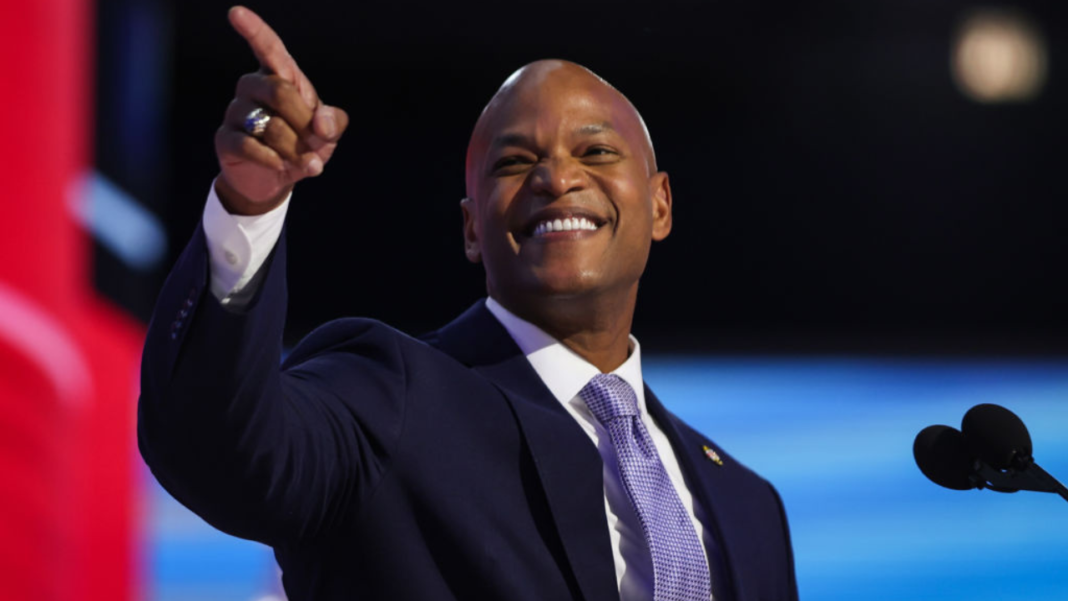As the only Black governor in the United States, Wes Moore is emerging as a crucial figure within the Democratic Party, particularly in efforts to mobilize Black voters. Recognized as part of the future leadership of the party, Moore’s influence is growing as he rallies support and drives turnout among this vital demographic. Recently, he played an instrumental role in securing significant wins for Democrats in both Virginia and New Jersey during the recent elections, underscoring his status as a key player in contemporary Democratic politics.
Moore’s outreach in the final days leading up to the elections showcased his effectiveness. Utilized in major urban centers like Newark, Richmond, and Fredericksburg, he worked diligently to galvanize Black voters—whose participation proved essential to the Democratic victories on November 4. His efforts in Virginia were particularly notable, where candidates like Nicole Cole made history by defeating long-standing incumbents, and Jay Jones became the state’s first Black attorney general.
Hopeful signs for Democratic prospects also shone in New Jersey, where Mikie Sherrill returned to the gubernatorial race after successfully bringing Black voters back into the fold—some of whom had previously supported Donald Trump. Sherrill’s performance boasted the highest turnout for a Democratic gubernatorial candidate in over two decades, demonstrating the shifting political landscape and the importance of Black voter engagement.
Moreover, Moore’s commitment to Democratic victories was evident during the 2023 elections, as he traveled to battleground districts that were pivotal in flipping control of both the Virginia House of Delegates and State Senate. Recognized as a rising star and an Army veteran, he has also supported Kamala Harris in her campaign efforts for the upcoming 2024 election, emphasizing his dedication to expanding Democratic influence.
A spokesperson for the Democratic Governors Association highlighted Moore’s role in energizing Black voters, stating, “Governor Wes Moore was a key voice in laying out what is at stake for Black voters,” which resonated deeply with constituents in both states. Rallies and individual conversations served as platforms where Moore could articulate the significance of active voter participation.
As the Democratic Party grapples with internal divisions regarding issues of identity politics, particularly accusations of being too “woke,” Moore’s influence could prove vital. Black voters have historically been the party’s most steadfast supporters, yet there is a palpable concern among some that their loyalty is taken for granted. Moore’s leadership is positioned to navigate these complexities as the party seeks to reclaim congressional majorities in the 2026 midterm elections.
In his current role as governor of Maryland, Moore has implemented several progressive policies that reflect his commitment to racial justice and economic equity. Since taking office in 2023, he has initiated over 175,000 pardons for misdemeanor cannabis convictions, aiming to address historical injustices that disproportionately affect Black communities. Additionally, he has reformed the state’s procurement practices to increase opportunities for Black-owned businesses and committed substantial funding to bolster Black homeownership.
Moore resonates with Black voters not only through his policies but also by communicating a shared experience and vision for the future. He emphasizes that uplifting Black communities benefits society at large, a perspective that reinforces the interconnectedness of successful public policy. “It’s something that actually turns around and benefits our entire society,” he notes, promoting a broader understanding of equity.
This year, Moore also emerged as a passionate defender against attacks from former President Trump, who has leveled harsh criticisms at Baltimore—a city he derogatorily termed a “hellhole.” Moore’s resolve in combating such rhetoric demonstrates his commitment to representing and advocating for marginalized communities while challenging narratives that undermine their dignity.
Amidst ongoing political challenges, including issues surrounding redistricting, Moore has established a Redistricting Advisory Commission to guide the state in developing fair electoral maps before the 2026 elections. He criticizes recent gerrymandering efforts in states like Texas and North Carolina, labeling it “political redlining,” and insists that Maryland must stand firm against such tactics.
While there is speculation about Moore being a potential presidential candidate in future elections, he remains focused on his immediate responsibilities as he seeks reelection next year. His track record in Maryland has been notable, with declining unemployment rates, a reduction in violent crime, and successful budget management transforming a deficit into a surplus.
His forward-thinking approach and capacity to inspire engagement among Black voters position him as a vital asset for the Democratic Party. Moore’s lens on policy reflects a broader strategy to foster inclusive progress, making him an influential figure not only in Maryland but across the national political landscape.



